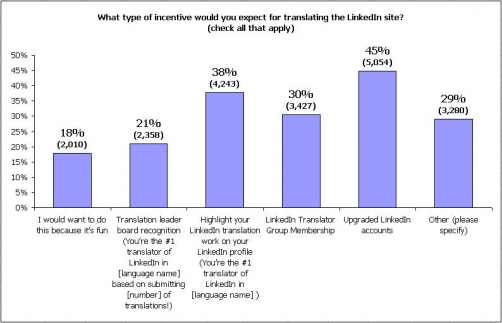Psychology of Crowdsourcing
Monday, July 13th, 2009 Crowdsourcing is a powerful new model of production that uses mass collaboration to generate new content, software and other products and services of commercial value using self-selected volunteer labor. Its continued success raises an interesting question for the cognitive designer – Why do highly compensated knowledge workers and talented amauters alike work so hard for free?
Crowdsourcing is a powerful new model of production that uses mass collaboration to generate new content, software and other products and services of commercial value using self-selected volunteer labor. Its continued success raises an interesting question for the cognitive designer – Why do highly compensated knowledge workers and talented amauters alike work so hard for free?
One answer pulls on the so-called “big tent” theory of motivation claiming that the key comes from the fact that crowdsourcing offers a generous menu of alternative motivations. This way passionate and talented contributors are bound to opt in from the hundreds of millions of candidates on the web. Some evidence to support this comes from the interesting post on Wikinomics about LinkedIn’s Crowdsourcing Dilemma.
LinkedIn is planning to us Crowdsourcing to produce other language versions of its content. In considering the strategy they asked potential crowdsourcers – What incentives would you expect for translating the LinkedIn site? This is what the found:
From a cognitive design standpoint the implication is clear – I will trade valuable labor for recognition, meaning and fun. Of course, some free services (upgraded account) would also be nice.
